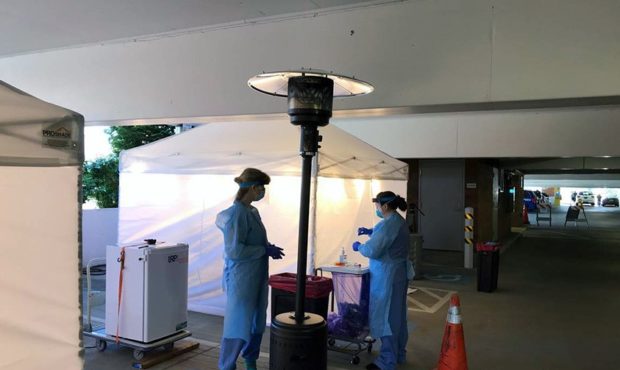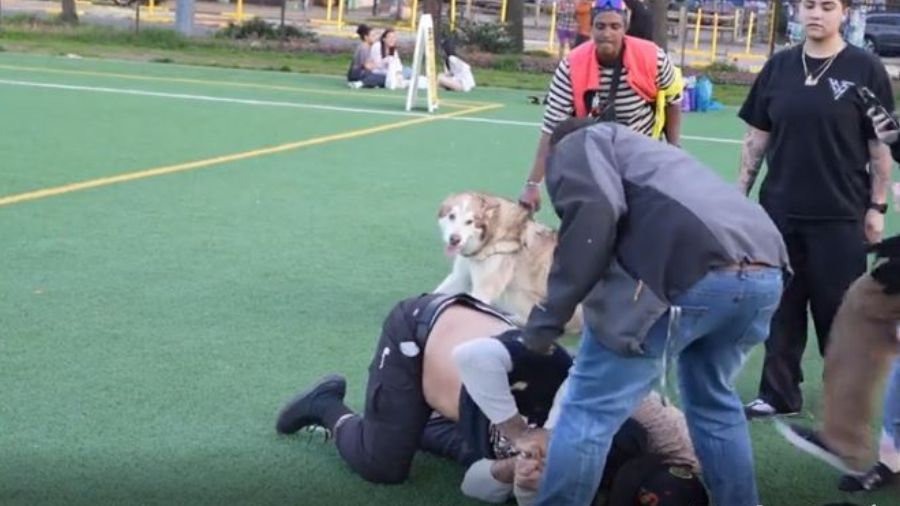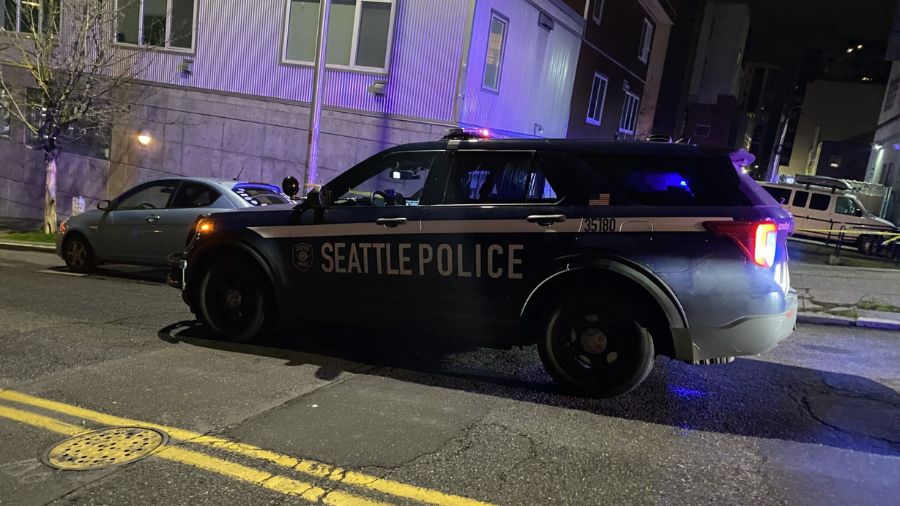Coronavirus is a ‘slow motion disruption’ says UW Dr. Rabinowitz
Mar 13, 2020, 4:10 PM

UW Medicine nurses await fellow employees coming in for drive-thru testing for the COVID-19 virus at a parking garage at University of Washington Medical Center-Northwest. (Katie Chen/UW Medicine)
(Katie Chen/UW Medicine)
Two weeks ago, Dr. Peter Rabinowitz, director of the UW MetaCenter for Pandemic Disease Preparedness, rated his concern level for coronavirus at seven or eight out of ten. On Friday, Rabinowitz said he’s now rating his concern at an eight or nine.
Gov. Inslee expands closures to all K-12 schools statewide
“What a difference a few weeks makes,” Rabinowitz told KIRO Radio’s Gee and Ursula Show on Friday. “We know that it is here, there’s hundreds of cases in the state, and we’re still finding out the true extent of it in the state because the testing is still catching up.”
Rabinowitz said the coronavirus will be with us for a while, not over in just one big event.
“I was thinking that it’s like a natural disaster, like an earthquake or a hurricane, except that it’s in slow motion,” he said. “It’s not over tomorrow and then we go on to the next thing in the news cycle and think about something else or do the recovery. … It’s as disruptive as a hurricane, an earthquake, but it’s a slow motion disruption.”
While there is still a lot to be learned about coronavirus, we’ve seen other countries deal with similar outbreaks who are now a week or more ahead of the United States in their response efforts and have provided examples for what measures are working to slow the spread, and what’s not.
“If hundreds of cases of COVID sick people start coming into the house, we’re going to have a real problem,” he said. “We’ve got to slow that down.”
As other health officials have emphasized, the social distancing measures, closures, and quarantines are not designed to stop the virus, but to slow the spread as much as possible, as early as possible.
Dr. Rabinowitz reiterated the importance of calling your doctor or health care provider before going to the emergency room or a clinic. If it’s an absolute emergency, then go in, but otherwise there are a lot of tele-medicine options, including a phone call or an email to determine if you have coronavirus, and if you should get tested or receive treatment.
Again, coronavirus has proven to be the highest risk for older people and people with underlying health conditions. Most other cases will be mild, which Rabinowitz defined as “somewhat like a bad cold” that does not progress to pneumonia or cause breathing problems.
Seattle rallies together on social media in face of coronavirus crisis
“Certainly with good hygiene, you can reduce the risk to other people,” he said. “But it does mean staying away and doing things differently. Last time, I came in to the studio and I shook your hands, and we all talked about COVID-19. Now, I’m working at home today and people aren’t shaking hands quite as much. And I think that kind of behavior change is something that we’ve got to try to maximize.”
Listen to the Gee and Ursula Show weekday mornings from 9 a.m. – 12 p.m. on KIRO Radio, 97.3 FM. Subscribe to the podcast here.













